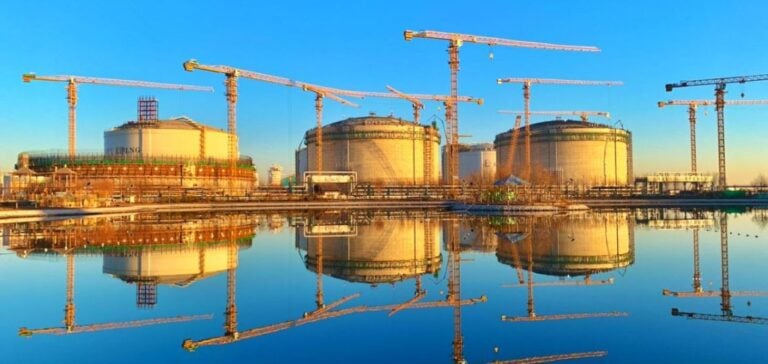The launch of the Tianjin Nangang ethylene complex by Sinopec demonstrates China’s commitment to strengthening its petrochemical industry while engaging in strategic international partnerships. This initiative reinforces China’s global position and offers promising prospects for the petrochemical market.
The project, a collaboration between Sinopec and INEOS, features an ethane cracking capacity of 1.2 million tons per year, making it one of the most modern facilities in China. This infrastructure also includes twelve derivative units, such as:
– **High-Density Polyethylene (HDPE):** With an annual capacity of 500,000 tons, addressing the needs of various industrial sectors.
– **Acrylonitrile Butadiene Styrene (ABS):** Essential for automotive and electronic industries, with production of 300,000 tons per year.
This integrated configuration optimizes the supply chain and reduces production costs, enhancing China’s competitiveness.
A Strategic Long-Term Partnership
This complex is the result of a 50/50 joint venture between Sinopec and INEOS, signed in August 2023. This collaboration reflects a shared strategic vision to address growing demand. The partnership also aims to:
– **Reduce dependence on imports:** The project enhances China’s energy self-sufficiency by increasing local production capacity.
– **Attract foreign investments:** INEOS, a major global player in chemistry, partners with Sinopec to stimulate the development of similar projects in China.
A Global Impact on the Petrochemical Market
With this new facility, China strengthens its position in the export of petrochemical products while influencing global market dynamics. Notable effects include:
– **Increased global supply:** Enhanced capacity in Tianjin helps stabilize supply fluctuations.
– **Cost reduction:** Large-scale local production improves China’s competitiveness in international markets.
– **Energy efficiency:** Despite high energy consumption, the technologies used in the complex aim to minimize environmental impact.
Challenges and Opportunities
Despite the undeniable benefits of the complex, several challenges remain:
1. **Environmental regulations:** Growing pressure on China to adopt more sustainable practices could complicate the expansion of similar projects.
2. **Global competition:** Ongoing investments in the United States and other countries stimulate increased competition.
3. **Price volatility:** Fluctuations in raw material prices directly influence profitability.
Despite these challenges, this project represents a key opportunity for the petrochemical sector, consolidating China’s ability to meet growing demand while attracting strategic partnerships.






















